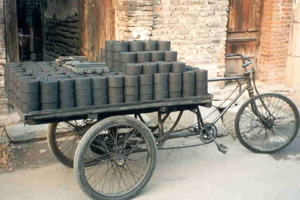There are certainly a number of major issues on the agenda this week as Chinese President Hu Jintao meets with Barack Obama in Washington, from human rights to currency manipulation. The one that has gotten scant attention is climate policy, though the two superpowers remain the focal point of global negotiations on the subject. Climate issues got passing notice in Obama’s remarks at their joint press conference today, as he noted that they are deepening the working relationship on energy:
We’re renewing our long-running cooperation in science and technology, which sparks advances in agriculture and industry. We’re moving ahead with our U.S.-China clean energy research center and joint ventures in wind power, smart grids and cleaner coal. I believe that as the two largest energy consumers and emitters of greenhouses gases, the United States and China have a responsibility to combat climate change by building on the progress at Copenhagen and Cancun, and showing the way to a clean energy future. And President Hu indicated that he agrees with me on this issue.
Obama added later in the remarks:
And finally, China’s rise is potentially good for the world. To the extent that China is functioning as a responsible actor on the world stage, to the extent that we have a partner in ensuring that weapons of mass destruction don’t fall into the hands of terrorists or rogue states, to the extent that we have a partner in dealing with regional hotspots, to the extent that we have a partner in addressing issues like climate change or a pandemic, to the extent that we have a partner who is helping poorer countries in Asia or in Africa further develop so that they, too, can be part of the world economy—that is something that can help create stability and order and prosperity around the world. And that’s the kind of partnership that we’d like to see.
Hu also noted their plans to work together on global challenges, listing climate change as one of them. I can imagine, though, that the conversation on this subject wasn’t entirely as chummy as the remarks would imply, however. The US last month lodged a complaint with the World Trade Organization about China’s subsidies for clean energy, arguing that the country is unfairly stacking the deck in favor of their products.













